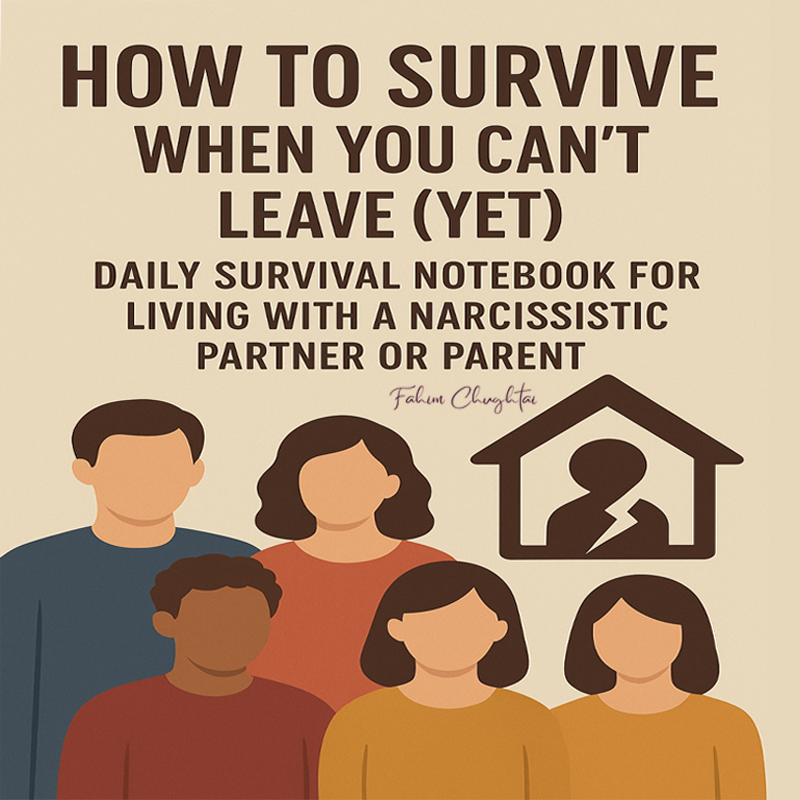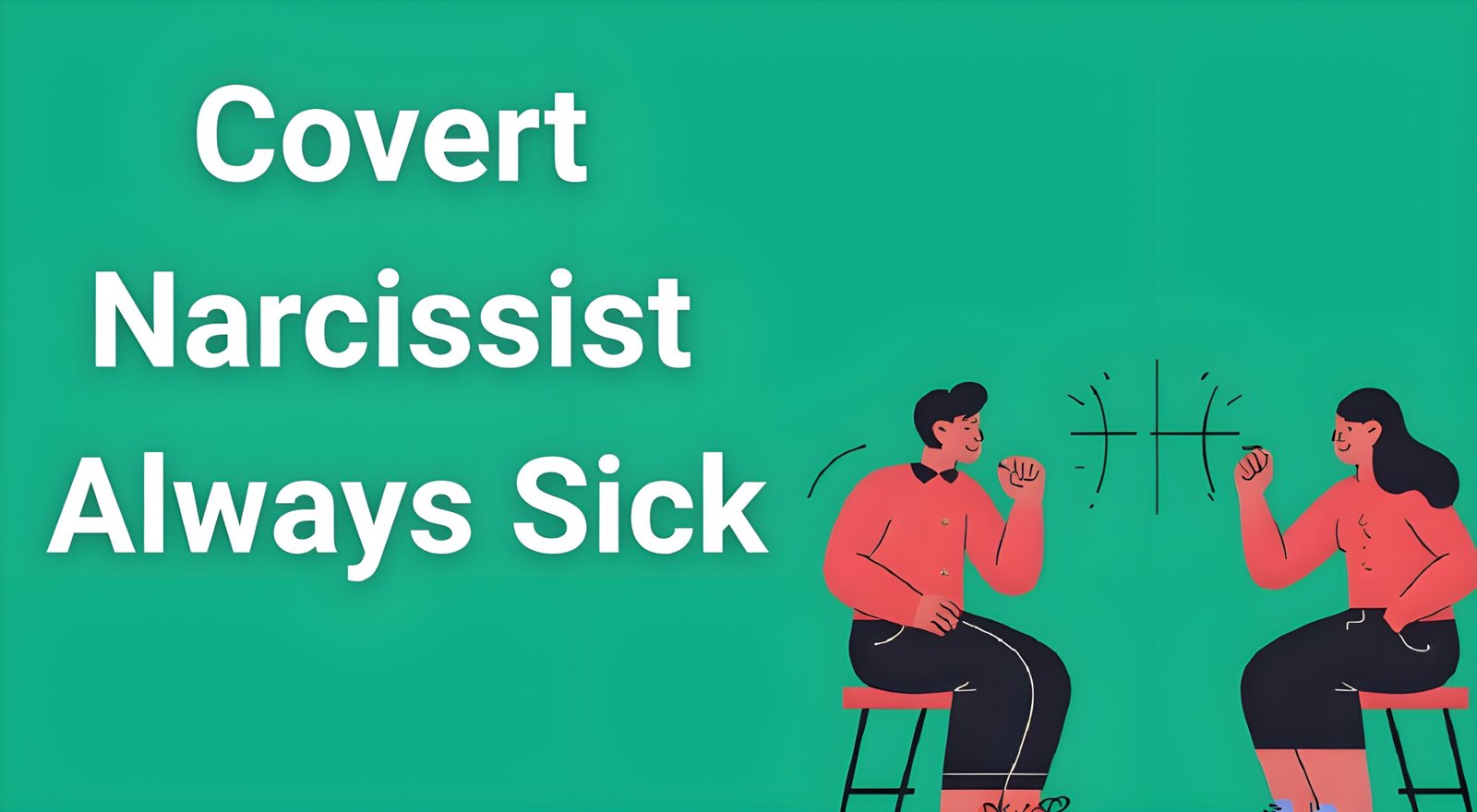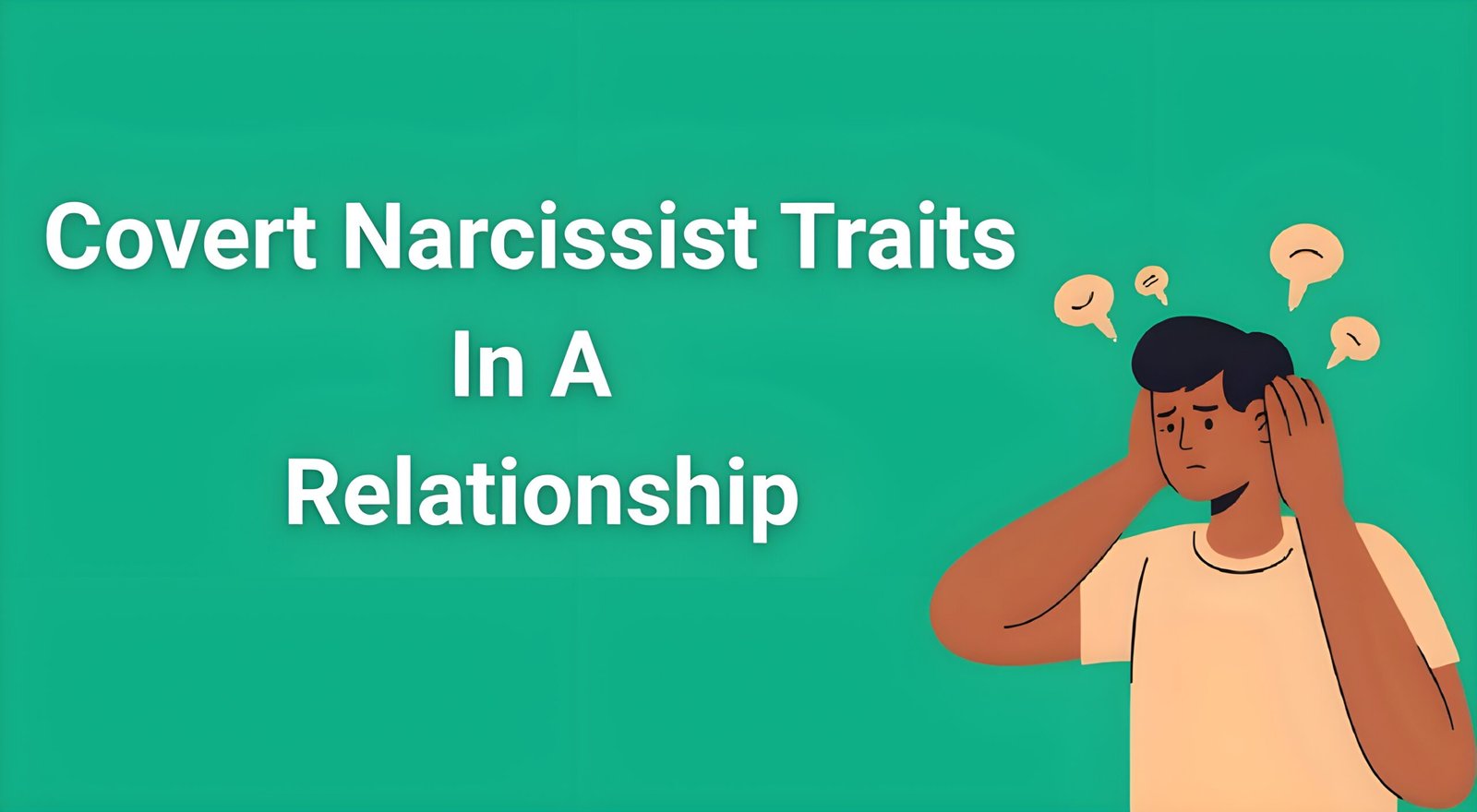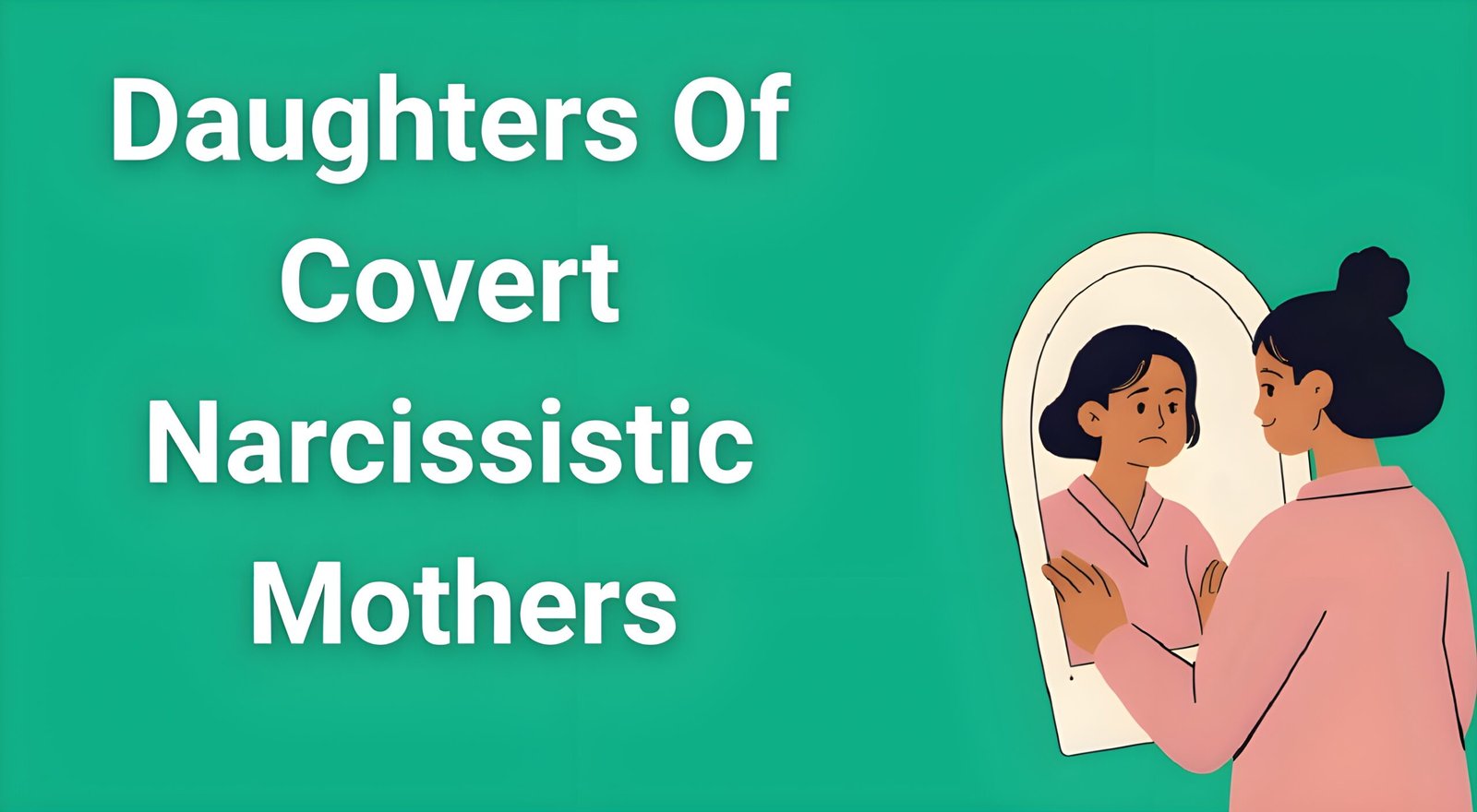Have you ever wondered why that covert narcissist in your life seems perpetually unwell? You’re not imagining things. There’s a calculated pattern behind why a covert narcissist always sick behavior emerges as their go-to manipulation strategy. Unlike their overt counterparts who demand attention through grandiose displays, covert narcissists weaponize vulnerability itself, turning illness into their most powerful tool of control.
- Understanding the Covert Narcissist’s Hidden Agenda
- The 7 Core Reasons Behind the Manipulation
- Recognizing the Red Flags and Warning Signs
- The Devastating Impact on Relationships and Mental Health
- Breaking Free: Strategies for Protection and Recovery
- Protecting Your Children and Future Relationships
- Frequently Asked Questions
- Conclusion: Reclaiming Your Life from Manipulation
This isn’t about genuine health concerns. This is about understanding a sophisticated psychological manipulation that leaves victims questioning their own perceptions while being systematically drained of their emotional resources. Let’s uncover the disturbing truth behind this phenomenon and learn how to protect yourself from falling into their carefully laid trap.
Understanding the Covert Narcissist’s Hidden Agenda
Covert narcissists operate differently from the stereotypical image of an attention-seeking, grandiose individual. Instead of demanding the spotlight through achievements or dramatic behavior, they secure it through perceived fragility and chronic health complaints. This makes the covert narcissist always sick pattern particularly insidious because it exploits our natural compassion and caregiving instincts.
Think of it like emotional quicksand. The more you try to help and show care, the deeper you sink into their web of manipulation. They present themselves as vulnerable souls who desperately need your support, but underneath this facade lies a calculated agenda to maintain control over your time, energy, and emotions.
Am I Dealing With a Covert Narcissist — or Just Toxic Behavior?
Research in psychology shows that individuals with narcissistic personality disorder often struggle with genuine intimacy and emotional regulation. For covert narcissists, chronic illness becomes their solution to multiple problems: it ensures constant attention, provides excuses for avoiding responsibilities, and creates a narrative where they’re always the victim deserving of special treatment.
The 7 Core Reasons Behind the Manipulation
1. Attention Monopolization Through Sympathy
When a covert narcissist always sick, they’ve discovered the ultimate attention-gathering mechanism. Unlike demanding praise for achievements, playing the victim through illness generates automatic sympathy and concern. Every conversation becomes centered on their health, their pain, and their needs.
This strategy works because humans are biologically wired to respond to distress signals. When someone appears vulnerable and in need, our empathy kicks in immediately. Covert narcissists exploit this hardwired response, ensuring they remain the focal point of every interaction without appearing selfish or demanding.
The pattern typically escalates during times when attention might naturally shift elsewhere. Notice how their symptoms mysteriously worsen during your important events, celebrations, or when you’re dealing with your own challenges. This isn’t coincidence – it’s strategic emotional hijacking.
2. Responsibility Avoidance and Control
Chronic illness provides the perfect excuse for avoiding obligations while maintaining moral superiority. A covert narcissist always sick can duck out of family gatherings, work responsibilities, or relationship duties while positioning themselves as unfortunate victims rather than unreliable individuals.
This manipulation works on multiple levels. Not only do they escape unwanted tasks, but they also control the narrative around their absence. Instead of being seen as selfish or lazy, they’re viewed as struggling heroes trying their best despite overwhelming circumstances.
The psychological impact on their targets is profound. Family members and partners begin accepting reduced expectations and increased caregiving responsibilities. Over time, this creates an imbalanced dynamic where the covert narcissist’s needs always take precedence over everyone else’s.
3. Emotional Manipulation and Guilt Induction
Perhaps the most damaging aspect of the covert narcissist always sick strategy is how it weaponizes guilt. They become masters at making others feel selfish for having needs, pursuing goals, or questioning their behavior. Any attempt to set boundaries is met with reminders of their suffering and your apparent lack of compassion.
This guilt manipulation creates a psychological prison for their victims. You begin second-guessing your own feelings, minimizing your needs, and accepting unreasonable demands because challenging them feels cruel when they’re “suffering.” This is exactly what they want – complete emotional control through manufactured sympathy.
The tragedy is that this manipulation often works best on the most caring, empathetic individuals. The very qualities that make you a good person become the vulnerabilities they exploit to maintain their emotional stranglehold.
4. Identity as the Perpetual Victim
For covert narcissists, being sick isn’t just a tactic – it becomes their core identity. They invest heavily in being seen as the person who struggles more than anyone else, faces unique challenges, and deserves special consideration because of their suffering.
This victim identity serves multiple purposes. It explains away their failures, justifies their demanding behavior, and creates a narrative where any criticism becomes an attack on someone who’s already suffering. They become untouchable because questioning them means questioning someone who’s already down.
The covert narcissist always sick pattern reinforces this identity daily. Every symptom becomes evidence of their special suffering, every bad day becomes proof that life treats them unfairly, and every need for care becomes validation of their victim status.
5. Testing and Training Their Supply
Covert narcissists use their chronic illness as a testing ground for their emotional supply sources. They carefully observe who responds with care, who can be manipulated into caregiving roles, and who might question their narrative. This information helps them identify their most reliable sources of attention and emotional support.
Think of it as an ongoing psychological experiment where your responses are being catalogued and analyzed. Show too much skepticism, and you might find yourself discarded. Demonstrate excessive concern, and you’ll be trained to provide even more care and attention.
This testing phase is crucial for understanding how the covert narcissist always sick manipulation evolves over time. They refine their approach based on what works best with each individual, creating personalized manipulation strategies that are incredibly difficult to resist.
6. Competition Elimination
When a covert narcissist always sick, they effectively remove competition for attention and care within their social circle. Other people’s problems seem trivial compared to their chronic suffering. Your achievements become secondary to their latest health crisis.
This competitive dynamic is often subtle but devastating. Family gatherings revolve around their health updates. Conversations consistently return to their symptoms and treatments. Other people’s news gets overshadowed by their ongoing medical drama.
The psychological effect is that everyone else learns to minimize their own needs and experiences. You might find yourself hesitating to share good news or discuss your own challenges because their suffering always seems more pressing and important.
7. Long-term Security and Dependency Creation
Perhaps most calculating of all, the covert narcissist always sick strategy builds long-term security by creating dependencies. Family members reorganize their lives around their care needs. Partners accept reduced expectations and increased caretaking responsibilities. Friends become accustomed to providing emotional support and practical assistance.
Over time, these relationships become structured around their illness, making it increasingly difficult for others to leave or reduce their involvement. The covert narcissist becomes the center of a caregiving network that they’ve systematically constructed through their manufactured vulnerability.
This dependency creation is often gradual and subtle, making it hard to recognize until you’re deeply entrenched in the pattern. By the time you realize what’s happening, extracting yourself feels impossible because of the guilt and obligations they’ve carefully cultivated.
Recognizing the Red Flags and Warning Signs
Understanding the covert narcissist always sick manipulation requires learning to spot the subtle warning signs that differentiate genuine health struggles from calculated emotional exploitation.
Timing Patterns: Pay attention to when their symptoms flare up. Do they coincidentally worsen during your important events, when you’re receiving attention, or when they’re expected to fulfill obligations? Genuine illness doesn’t follow such convenient patterns.
Symptom Inconsistencies: Notice if their symptoms seem to change based on the audience or situation. They might appear energetic and engaged in activities they enjoy while claiming debilitating fatigue for things they want to avoid.
Medical Drama: Covert narcissists often create elaborate medical narratives with mysterious symptoms that doctors can’t quite explain. They become the star of their own medical mystery, generating ongoing concern and attention.
Resistance to Solutions: Genuine sufferers want to get better. Covert narcissists often resist treatments that might actually help because recovery would end their source of attention and excuse for special treatment.
Competitive Suffering: They consistently position their health issues as more serious, more mysterious, or more limiting than anyone else’s. Other people’s health problems are minimized or dismissed.
If you’re dealing with someone whose illness seems to serve these psychological functions rather than being a genuine health challenge, you’re likely witnessing the covert narcissist always sick manipulation in action.
The Devastating Impact on Relationships and Mental Health
The consequences of living with or caring for someone who uses the covert narcissist always sick strategy extend far beyond the inconvenience of dealing with their demands. This form of manipulation creates profound psychological damage that can last for years.
Emotional Exhaustion: Constant caregiving and worry drain your emotional resources. You might find yourself feeling depleted, anxious, and overwhelmed without understanding why. The unpredictable nature of their “illness” keeps you in a constant state of alertness and concern.
Reality Distortion: Over time, you begin questioning your own perceptions and feelings. Their manipulation is so subtle and consistent that you start doubting whether your concerns are valid or if you’re being unsympathetic to someone who’s genuinely suffering.
Guilt and Self-Blame: The covert narcissist’s strategy is designed to make you feel guilty for having needs, setting boundaries, or questioning their behavior. You internalize the message that you’re selfish or uncaring, leading to chronic self-doubt and people-pleasing behaviors.
Social Isolation: Your world gradually shrinks around their needs and limitations. Social activities get cancelled because of their health issues. Friends drift away because every interaction revolves around their medical drama. You become increasingly isolated and dependent on their version of reality.
Trauma Bonding: The cycle of crisis and care creates a powerful psychological bond that’s difficult to break. You become addicted to being needed while simultaneously resenting the constant demands. This creates an internal conflict that the covert narcissist exploits to maintain control.
The most insidious aspect is how this manipulation masquerades as love and care. You’re told that your devotion proves your goodness while their demands are evidence of how much they need you. This makes it incredibly difficult to recognize that you’re being systematically manipulated and emotionally abused.
Breaking Free: Strategies for Protection and Recovery
Recognizing that you’re dealing with a covert narcissist always sick manipulation is the first step toward protecting yourself and reclaiming your emotional well-being. Recovery requires both practical strategies and deep psychological healing.
Establish Firm Boundaries: Start by setting clear limits on how much time and energy you’ll invest in their health concerns. This might mean limiting daily check-ins, refusing to cancel your plans for their latest crisis, or insisting they take responsibility for their own medical care.
Document Patterns: Keep a private record of their illness patterns, noting when symptoms appear and how they correlate with events in your life or their responsibilities. This documentation helps you maintain clarity about what’s really happening when they try to gaslight you.
Seek Professional Validation: A therapist experienced in narcissistic abuse can help you validate your experiences and develop healthy coping strategies. Having professional support is crucial because the covert narcissist’s manipulation is designed to make you question your own sanity.
Build External Support Networks: Reconnect with friends and family members who can provide reality checks and emotional support. The covert narcissist’s strategy depends on isolating you from outside perspectives that might challenge their narrative.
Practice Emotional Detachment: Learn to respond to their health complaints with polite concern rather than emotional involvement. Phrases like “I hope you feel better” or “You should probably see a doctor” acknowledge their communication without taking responsibility for their wellbeing.
Prepare for Escalation: When you start setting boundaries, expect their “illness” to worsen dramatically. This escalation is actually proof that their health issues are being used manipulatively rather than being genuine medical concerns.
For those who can’t immediately leave the relationship, such as adult children with narcissistic parents or spouses in complex situations, these strategies help minimize damage while you work toward long-term solutions.
When dealing with the covert narcissist always sick pattern, remember that you’re not responsible for curing their ailments or managing their emotions. Your job is to protect your own wellbeing and maintain healthy boundaries, regardless of how they respond to your self-care.
If you’re struggling to understand whether you’re dealing with genuine narcissistic abuse or just a difficult relationship, consider seeking a professional assessment. Many people find clarity through comprehensive analysis that examines the specific patterns and dynamics in their situation.
For those ready to break free from trauma bonds that keep them attached to manipulative relationships, structured recovery programs can provide the step-by-step guidance needed to reclaim your independence and emotional health.
Still Living With Them? You’re Not Helpless.

Protecting Your Children and Future Relationships
One of the most important considerations when dealing with a covert narcissist always sick individual is protecting children from learning these toxic patterns. Children are particularly vulnerable to this manipulation because they naturally want to care for sick parents or family members.
Educate Without Demonizing: Help children understand that some people use illness to get attention or avoid responsibilities without teaching them to be suspicious of everyone who’s sick. The goal is awareness, not cynicism.
Model Healthy Boundaries: Show children how to express appropriate concern while maintaining their own wellbeing. They need to see that caring for others doesn’t mean sacrificing their own needs or happiness.
Validate Their Feelings: Children often sense when something isn’t right but can’t articulate their concerns. Let them know it’s okay to feel confused or frustrated by inconsistent behavior, even from family members who claim to be sick.
You’ve Seen the Patterns. Now Break the Bond.
Provide Stability: Create consistent routines and expectations that don’t revolve around the narcissist’s health status. Children need to know that their activities, education, and emotional needs won’t be constantly disrupted by manufactured health crises.
Seek Professional Support: If children are showing signs of anxiety, depression, or people-pleasing behaviors related to a family member’s chronic illness pattern, therapeutic intervention can help prevent long-term psychological damage.
Remember that breaking the cycle of covert narcissist always sick manipulation isn’t just about your own healing – it’s about preventing these toxic patterns from being passed down to the next generation.
Frequently Asked Questions
Q: How can I tell if someone is genuinely sick or manipulating me with fake illness?
A: Look for patterns in timing, consistency of symptoms, and their response to treatment. Genuine illness doesn’t conveniently appear during your important events or disappear when they want to do enjoyable activities. Manipulative illness serves psychological functions like gaining attention or avoiding responsibilities.
Q: What should I do if I confront a covert narcissist about faking illness?
A: Direct confrontation rarely works and often leads to escalation of their symptoms or accusations that you’re heartless. Instead, focus on setting boundaries around your response to their illness rather than challenging the validity of their claims.
Q: Can therapy help someone who uses illness to manipulate others?
A: Therapy can be effective if the person genuinely wants to change and acknowledges their behavior. However, many covert narcissists resist treatment or use therapy as another platform for attention-seeking rather than genuine healing.
Q: How do I support a genuinely sick person without enabling manipulation?
A: Focus on practical support rather than emotional enmeshment. Help with specific tasks when appropriate, but don’t sacrifice your own wellbeing or reorganize your entire life around their health issues. Maintain your own interests and relationships outside of their illness.
Q: Is it possible for a covert narcissist to actually be sick sometimes?
A: Yes, covert narcissists can have genuine health issues. The manipulation lies in how they use both real and fabricated symptoms to control others and gain attention. The key is recognizing when illness becomes a tool for emotional manipulation rather than a medical reality requiring support.
Conclusion: Reclaiming Your Life from Manipulation
Understanding why a covert narcissist always sick reveals one of the most insidious forms of emotional manipulation in human relationships. By masquerading as vulnerability, this strategy exploits our deepest compassionate instincts while systematically draining our emotional resources and undermining our sense of reality.
The path to freedom begins with recognition and validation of your experiences. You’re not imagining the patterns, you’re not being unsympathetic, and you’re not responsible for managing someone else’s emotional needs through their manufactured health crises.
Recovery from this type of manipulation takes time, support, and often professional guidance. The trauma bonds created through cycles of crisis and care are powerful, but they can be broken with the right tools and understanding.
Remember that protecting yourself isn’t selfish – it’s essential. By maintaining healthy boundaries and refusing to enable manipulative behavior, you’re not only preserving your own wellbeing but also refusing to participate in a dynamic that ultimately serves no one’s genuine best interests.
Your life, your energy, and your emotional resources are valuable. Don’t let anyone, regardless of their health claims, convince you otherwise. The journey toward authentic relationships and emotional freedom is worth every step, even when it feels challenging or uncertain.
The covert narcissist always sick manipulation only works when you don’t understand what’s happening. Now that you do, you have the power to choose a different response and create healthier boundaries that honor both compassion and self-preservation.






